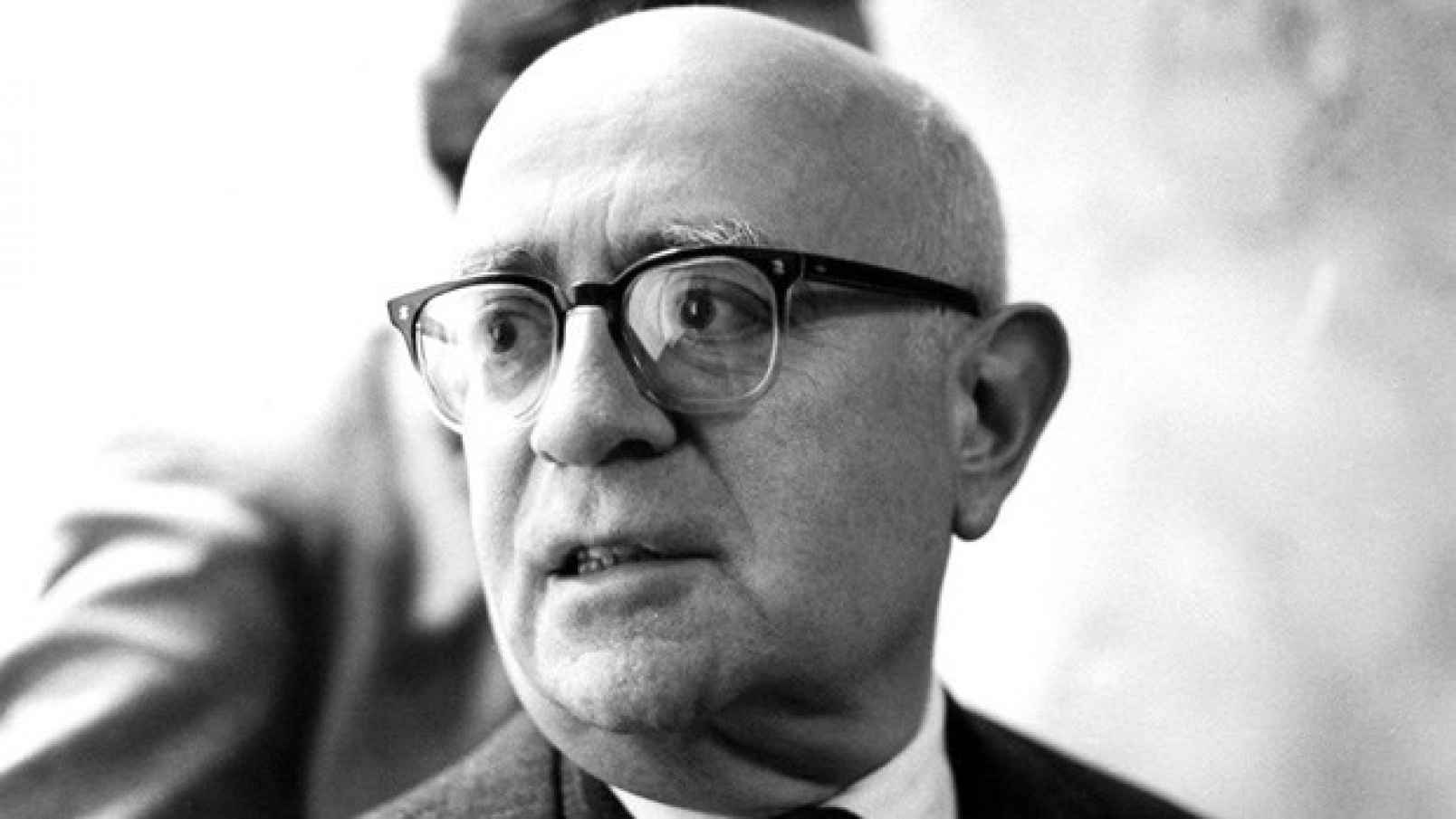When culture is mass-produced, all art is in danger of becoming the same.

The historical deepening of capitalism has led to the homogenization of culture. At least Theodor W. Adorno—a German critical theorist— thought so. In “The Culture Industry,” Adorno argues that “each branch of culture” has become “unanimous with itself,” as the burgeoning of mass production and mass consumption have developed hand in hand (Adorno 94). Adorno’s “culture industry”—a theoretical system that weds technology and economics—is a structure of domination in which those with power exercise their capacity to shape the mentality of the public (94, 95). It is in the interest of capital to reduce dissent, to create easily satisfied desires, and to perpetuate itself. And so, Adorno argues, potentially “unruly” forms like art, literature, and music are driven inexorably to sameness (99). The result, in Adorno’s view, is that “great” and “serious” art has been replaced by shallow forms that lend themselves to large-scale reproduction. Art is “subordinate[ed] … to [a] formula” and the masses learn to be satisfied with that (99).
Many contemporary music critics would agree with Adorno.
Digital delivery means that consumers can stream or pirate the songs with the best hooks; music services rush to provide pre-selected playlists that further universalize the listening experience of consumers—less and less aesthetic or intellectual effort is required of the audience (Hosenager; Serra; Collins). Much contemporary popular music does indeed deny listeners—in Adorno’s words— “any dimension in which they might roam freely in imagination” (100).

In other words, we like what Apple or Spotify wants us to like, while the profits roll to the shareholders. But is it really that simple? Modern music has trend-buckers as well as conformists. Consider Vampire Weekend, an indie rock band whose most recent album, Modern Vampires of the City, embodies many of the qualities that Adorno associates with great art: complexity, a willingness to counter prevailing ideologies, and the presumption of an engaged audience. Has Vampire Weekend found a way to escape the homogenizing forces that Adorno identified? Or is their resistance only a qualified success, limited by the mass production landscape in which they necessarily function as commercial artists?
No question that Vampire Weekend embraces complexity, a quality that Adorno sees as a primary casualty of capitalism (101, 96). From the beginning, Vampire Weekend has blended intricate lyrics and sounds. The band—formed by Ezra Koenig, Rostam Batmanglij, Chris Baio, and Chris Tomson while they were students at Columbia University—launched their career with work that melded post-punk guitars with African pop music and ska, layered with wry vocals that addressed upper class life in New England and New York, composed by four men in Polo sweaters. The interplay of elements in tension—vividly evident in songs like “Cape Cod Kwassa Kwassa” and “Giving up the Gun”—is at the center of Vampire Weekend and Contra.
Modern Vampires of the City, released in 2013, is more intricate still. The album is fundamentally concerned with the interplay of opposites, Adorno’s “tensions between the poles” (102). Musically, the album is constructed dually around pianos and muted guitars—and auto-tune, which is used to distort Koenig’s vocals and provide syncopated rhythms. While more somber than the band’s earlier releases, the melodies themselves are lighter—which contrasts with the dark content of the stories they tell.
The album opens with “Obvious Bicycle,” which follows a man who Koenig sings “oughta spare [his] face the razor / Because no one’s going to spare the time for [him].” The song is a set-up for considerations that come later in the album, but it perfectly embodies a tense relationship between music and the lyrics—the piano is soft and in the background, creating a dramatic contrast that emphasizes the harshness of the story itself. Indeed, “Obvious Bicycle” plays on that sharp contrast. The melody is pleasant and quiet, but the narrator tells his friend he no longer has a reason to live and that he might as well “spare the world a traitor.” This surprising interplay—between the lightness of the music and the darkness of the message—is the sort of “unresolved dissonance” that the culture industry seems designed to squash (Adorno 101).

Vampire Weekend’s fascination with opposites and ambiguity is matched by a predilection for social critique. Those criticisms are often implicit in their early work, where the contrast between the lyrics’ preppy concerns and the world music overtones speak quietly about power. But in Modern Vampires of the City, the band more powerfully and directly challenges prevailing beliefs about class and religion, calling into question Adorno’s claims about the inevitable ideological sameness of mass produced art (136). Modern Vampires suggests there are real choices to be made—and real consequences to consider—about faith, about aging, and about our relationships with one another.
Pushback against social constructs preoccupies much of the album. Koenig starts locally, arguing for the autonomy of the individual—himself—above the group. On “Step,” Koenig finds himself fighting against the judgements of the “punks who would laugh when they saw us together,” and the relatives who would only admire “tales of a past life,” finding solace in himself and his own growing up. And on “Diane Young,” Koenig flips the narrative structure, condemning an Irish girl “with the luck of a Kennedy” and others whose youthful exuberance has led them to “torch[] the Saab” and go “tottering off into that good night,” all while the “government agents surround [them] again.” Between the two songs, Koenig finds himself distinct from the old and new, and is satisfied in that.
The album’s most trenchant critique, though, is an ideological one. Vampire Weekend rails against religion in an arc that stretches across three songs. On “Unbelievers,” Koenig recognizes that he “will die [an] unbeliever” in “the fire [that] awaits,” and wonders whether this was really “the fate that half of the world [had] planned for” him. Koenig undercuts religious ideology, asking in effect whether it was moral to be condemned for not believing what “the world” had told him to believe.
And his argument becomes more drastic as the album progresses. “Worship You” and “Ya Hey” are directed towards God. In “Worship You,” the narrator alludes to John Milton, demanding if God with his “red right hand” would provide a “little bit of light to get [them] through the final days”, or whether they really would “see [him] once again.” The song is an angry criticism of a god who wasn’t there when the narrator needed him—but it’s “Ya Hey” when those sentiments are made real. Koenig argues that he “can’t help but feel / That you’ve seen the mistakes / But you let it go,” hinting at conflicts in Israel in an surreal aside where, like a DJ, God changes songs “on the festival grounds” from Desmond Dekker’s “Israelites” to the Rolling Stones’ “19th Nervous Breakdown.” The song in particular calls out the god of Judaism, using Ya Hey as euphemism for Yahweh, and accusing an inept God who “won’t say his name” by quoting back the Hebrew meaning of his name: “I am who I am.”
There’s no question that Modern Vampires of the City wants to rebel against the “rigid invariants” that, according to Adorno, typically make up popular music (98). Invoking the Old Testament in juxtaposition with characters who collectively explore their own mortality and ennui, Modern Vampires subverts the traditional pop song, or—at the very least—criticizes the same kinds of folks that would slam the “Orthodox girl who fell in love with the guy at the falafel shop” on “Finger Back.”
Adorno reserves his most damning critique of the culture industry for its effects on the intellectual capacity of the public. Because mass produced art demands minimal alertness from its consumers, Adorno contends, such art contributes to the “withering of imagination in the consumer of culture” and “crippl[es] the faculties” of reason (100). By questioning his own beliefs and filling Modern Vampires with religious and personal doubt, Koenig disrupts and engages his audience, forcing us to think critically about our own lives and our own beliefs.
This is, in the end, Vampire Weekend’s strongest claim for subverting the culture industry. Adorno allows for the value of such ‘countercultural’ art—indeed, of avant-gardism, Adorno claims that “the devices used in a work of the avant-garde … unlike those of the hit song, they serve the truth” (102). But—despite their merit—these arguments fail to assuage Adorno’s largest concerns.
Adorno questions whether the countercultural can ever divorce itself from the culture industry: “Once registered as diverging from the culture industry, [countercultural artists] belong to it as the land reformer does to capitalism” (103). In other words, Modern Vampires may appear to be revelatory and rebellious, but we recognize those qualities only in the context of popular culture—MVOTC is only different in that is different than something we all recognize. In this sense it is difficult for us as listeners (and surely for Koenig himself) to draw a line between what Koenig himself has offered us, and what the culture industry in turn has supplied him.
The second stanza of “Obvious Bicycle” goes like this:
No one’s gonna watch you as you go From a house you didn’t build and can’t control Oh you oughta spare your face the razor Because no one’s gonna spare the time for you You oughta spare the world your labor It’s been 20 years and no one’s told the truth.
In the end, the man is advised to “spare the world a traitor” and “thank … the rich ones who were kind,” while Koenig himself is left “wondering if anyone could begin / To listen.” Koenig is clearly self-aware enough to feel the irony in that statement, but can no more escape the culture industry than the subject of “Obvious Bicycle” can escape the “house he didn’t build and can’t control.”
Works Cited:
- Adorno, Theodor and Max Horkheimer. Dialectic of Enlightenment: Philosophical Fragments. Stanford University Press, 2002.
- Collins, Nick. “Modern Music Really Does Sound the Same.” The Telegraph, 26 July 2012, http://www.telegraph.co.uk/culture/music/9430338/Modern-music-really-does-sound-the-same.html.
- Hosenager, Kartik, et al. “Will the Global Village Fracture into Tribes?: Recommender Systems and Their Effects on Consumers.” Management Science 60.4, 2014, https://papers.ssrn.com/sol3/papers.cfm?abstract_id=1321962.
- Serra, Joan, et al. “Measuring the Evolution of Contemporary Western Popular Music.” Scientific Reports 2.521, 2012, https://www.nature.com/articles/srep0052.
- Vampire Weekend. Vampire Weekend. XL Recordings, 2008.
- –––. Contra. XL Recordings, 2010.
- –––. Modern Vampires of the City. XL Recordings, 2013.